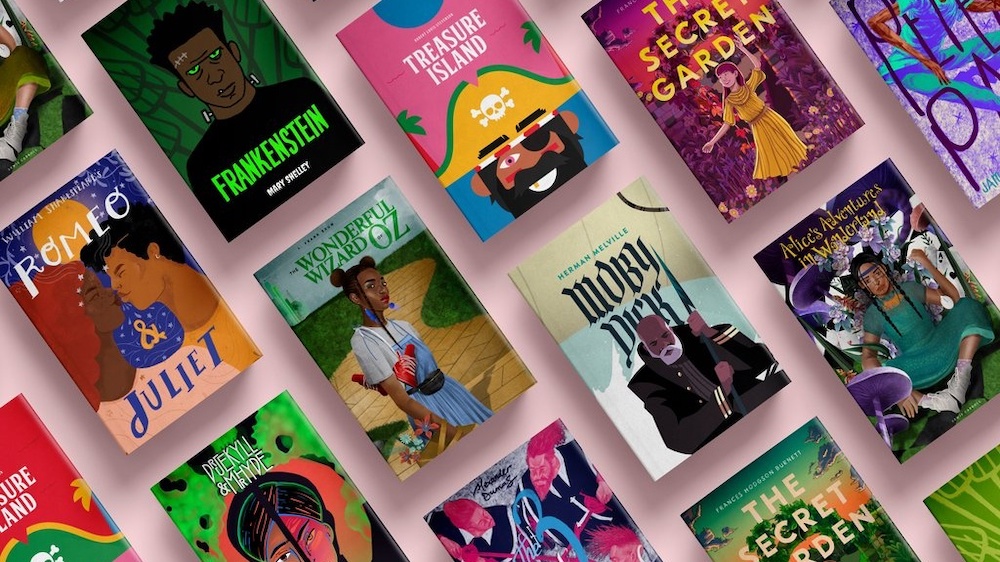If you’re interested in sharing your opinion on any cultural, political or personal topic, create an account here and check out our how-to post to learn more.
____
This year during Black History Month, Barnes & Noble, the gargantuan sized bookselling chain, decided to launch “Diverse Editions,” a project with literary classics such as Treasure Island, Moby Dick and Frankenstein featuring newly illustrated covers with its key characters reimagined as minorities.
That skid sound you just heard is the bookseller being dragged across social media.
While Barnes & Noble may have had sincere intentions, critical backlash spread. But can we blame the faultfinders? I certainly can’t. After all, I’m one of them. I’m of the opinion that the obvious strategy to promote Black History Month in the stores was to use the month to endorse diverse books by writers of color. By using novels with white characters and replacing the covers with people of color, Barnes & Noble, for all intents and purposes, essentially hijacked the month to offer a replacement for Black voices, which is just sad. Honestly, this sort of thing is getting old.
The chain isn’t the first to deal with this kind of crisis. On the contrary, Dove faced its own backlash with a 2017 advertisement they insisted wasn’t racially inventive. The ad depicted a Black woman morphing into a white woman. To some, the screenshot suggested that whiteness represented cleanliness.
The following year, H&M dealt with its own crisis after running a product photo including a Black child wearing a sweatshirt with the words “coolest monkey in the jungle” imprinted on the front. While the parents of the child went on record to state that they didn’t feel the ad was racist — I’m not quite sure what they were smoking, but sure — one fact remains: corporations large and small need to start giving a damn about hiring teams that boast diversity and inclusion. The Barnes & Noble incident places yet another spotlight on this.
Try as I might, I just can’t seem to comprehend how the book cover idea got approved. While conversations on the topic of diversity and inclusion can sometimes prove to be a challenge, these discussions are undoubtedly needed. I’m not sure what the makeup is of Barnes & Noble’s culture within the levels of its organization. However, I do humbly believe that one of the best ways to continue to learn and gain expertise within an organization is by studying, challenging yourself and simply surrounding yourself with talented and diverse individuals. A diverse workplace can be crucial for a company’s success and growth.
Additionally, the amount of different ideas from different people of all walks of life, lending their expertise, can only benefit a company. Moreover, having a team of individuals with different and distinctive backgrounds can help with avoiding a crisis such as this. Simply put, it adds a spark of representation, which is something that seems to be needed these days.
In 2017, USC Annenberg published a report that indicated that a quarter of the 900 movies examined did not have a single named or speaking Black character. Audiences with little exposure to those outside of their community could potentially associate these limited media representations with reality. The same can be applied to books. According to the Cooperative Children’s Book Center, only 6% of children’s and young adult books published in the United States in 2018 were written by Black authors. Evidently, there is room for improvement.
So, what are some takeaways from the Barnes & Noble crisis?
-
Well, for starters, knowing how fast things can spread on social media is something every business professional should be aware of. It’s 2020. A crisis now has the potential to spread a lot faster thanks to Twitter. Being prepared counts.
-
Showing empathy is important. While I do give kudos to Barnes & Noble for reacting quickly and utilizing their own social media channels to issue an apology, the damage had been done.
-
Another takeaway is simply not being tone deaf. You can’t promote diversity in a book unless the work is diverse. To that end, I recommend such wonderful works by people of color — Dear Martin, Rebound, Becoming, No Ashes in the Fire, The Hate U Give, The Misadventures of Awkward Black Girl, Invisible Man and Got the Whole World Watching, to name a few.
-
And as indicated before, hiring a staff full of wonderfully diverse people can go a long way.
I’m sure Barnes & Noble will recover. Yet, it would behoove them to keep a finger on the pulse as it relates to their diverse audience. Reading may be fundamental, but the fight for diversity and inclusion isn’t going away anytime soon.
